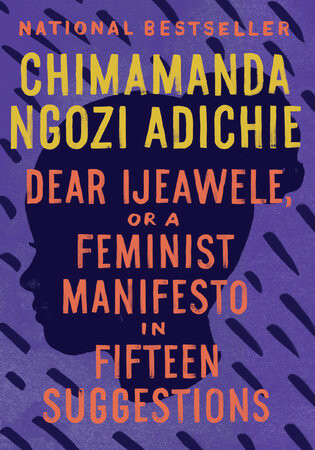
The author’s fourth suggestion describes an ideological phenomenon she calls “Feminism Lite.” In her fifth suggestion, the author tells Ijeawele to teach her daughter to love reading. In the third suggestion, the author rejects the language and concept of “‘gender roles’” (14) and tells Ijeawele to make her own choices without considering certain activities “for boys” and others “for girls.”

The author instead recommends that mothers and fathers share childcare and household responsibilities equally. In the author’s second suggestion, she points out that women have been socially conditioned to see themselves as the primary providers of childcare. In the first suggestion, the author reminds Ijewele that while motherhood is important, she must also be a “full person” (7) and not feel pressured to quit her job. The author then begins a list of her fifteen suggestions, each of which is accompanied by commentary ranging from one page to seven pages long. If you cannot, the disparity is a form of gender-based discrimination or bias. The second tool is a test asking whether you can “get the same results” (6) in any given scenario if you switch the genders. The first is the premise or belief that: “I matter equally. She congratulates Ijeawele on the birth of her daughter, Chizalum, and introduces Ijeawele (as well as her general readership) to her Feminist Toolkit. Thus, the author closes her introduction and begins her letter addressed to Ijeawele. Nonetheless, the author concludes her remarks in her introduction with the recognition that it is “morally urgent” (4) to have these conversations. The author mentions that since she has now had a baby girl too, she appreciates how much easier it is to “dispense advice” (4) about raising a child than it is to actually raise one. At the time, the author decided to write Ijeawele a letter, which she hoped would be both “honest” and “practical” (4).

As she writes in her introduction, Adichie's friend Ijeawele, shortly after giving birth to a baby girl, had asked the author how to raise her baby girl a feminist. The author includes an “Introduction” addressed to the book’s readers, contextualizing the letter and its publication. In this non-fiction work, Chimamanda Ngozi Adichie frames her thoughts on feminism and raising children in the form of a letter to one of her friends named Ijeawele.

Dear Ijeawele, or a Feminist Manifesto in Fifteen Suggestions, 2017.

The following version of this book was used to create this study guide: Adichie, Chimamanda Ngozi.


 0 kommentar(er)
0 kommentar(er)
